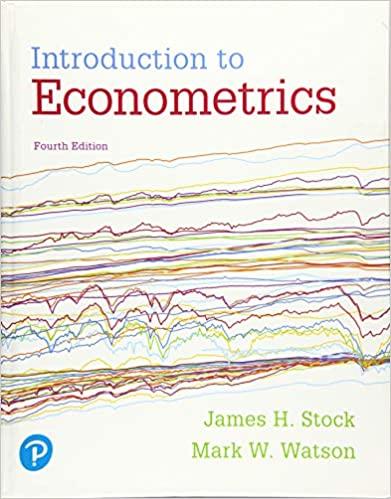Suppose that you added (F D D_{t+1}) as an additional regressor in Equation (16.2). If (F D
Question:
Suppose that you added \(F D D_{t+1}\) as an additional regressor in Equation (16.2). If \(F D D\) is strictly exogenous, would you expect the coefficient on \(F D D_{t+1}\) to be 0 or nonzero? Would your answer change if \(F D D\) is exogenous but not strictly exogenous?
Equation (16.2)

Fantastic news! We've Found the answer you've been seeking!
Step by Step Answer:
Related Book For 

Question Posted:





